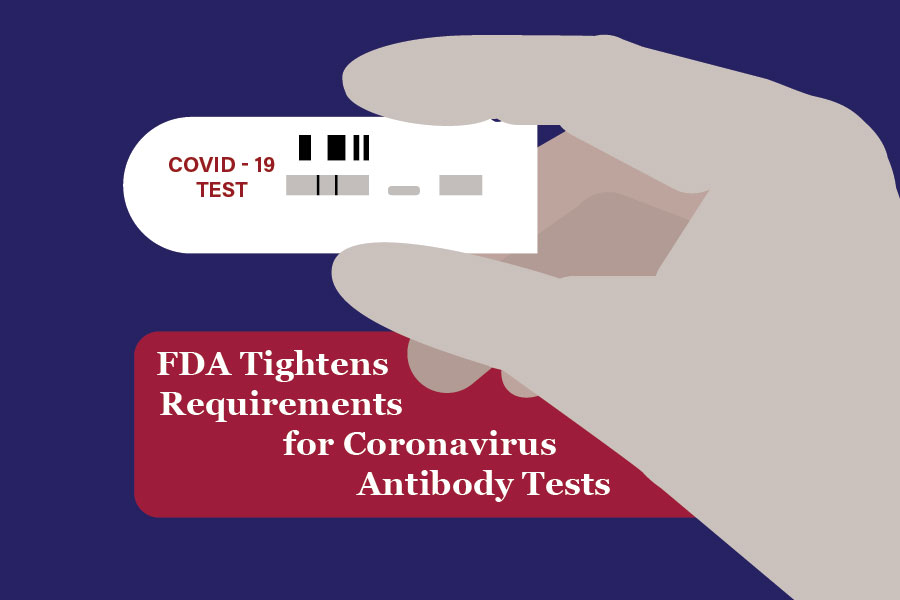Back in Mid-March, when the COVID-19 pandemic was starting to take off in the US, the FDA issued a policy that allowed antibody tests to enter the market without securing an EUA. This was intended to provide hospitals and labs with access to tests and mitigate the risk of patients with COVID-19 going undiagnosed. Since then, the US market has been flooded with antibody tests, with the accuracy of these tests coming into question.
An April 24th report from a House Oversight and Reform Subcommittee investigation concluded that the FDA could not efficiently validate the accuracy of antibody tests that are on the market and contended that the agency has “taken no public enforcement action against any company, and has not conveyed any clear policy on serological tests.”1 The report asserts that numerous companies have taken advantage of the pandemic and marketed fraudulent antibody tests in light of the relaxed regulatory requirements. The Commissioner, Stephen Hahn, defended the policy claiming that it was necessary to provide regulatory flexibility and that there was an understanding that these tests were not to be used as the sole basis for COVID-19 diagnosis.
Despite defending the original policy, the agency acknowledged that “unscrupulous actors [are] marketing fraudulent test kits and using the pandemic as an opportunity to take advantage of Americans’ anxiety.”2 Additionally, the agency has now beefed up the original policy by tightening restrictions for serology testing. In short, all developers of serological testing are now required to submit a request for an EUA. Manufacturers must submit an EUA request with their validation data within 10 business days from the date they notified the FDA of their testing. The policy also clarifies that if you notified the FDA before the issuance of the revised policy (May 4th) that you have 10 days from the date of the revision to request an EUA for your product.3
The agency has made it clear that any manufacturers unable to comply with the revised policy will need to withdraw their products from the market. You can also expect the agency to do a thorough reconciliation of any antibody tests that were placed on the market before the May 4th guidance to ensure that developers comply. If you have an antibody test that could be used during the COVID-19 pandemic but unsure what regulations you need to comply with, EMMA International can help! We are keeping up to date with all the changing regulations surrounding COVID-19 and can help you navigate them. Contact us at info@emmainternational.com or call us at 248-987-4497 to see how we can help.
1House of Representatives, Committee on Oversight and Reform (April 2020) Preliminary Findings of the Subcommittee’s Coronavirus Antibody Testing Investigation retrieved on 05/06/2020 from: https://oversight.house.gov/sites/democrats.oversight.house.gov/files/ECP%20Staff%20Report%20on%20Preliminary%20Findings%20of%20the%20Subcommittee%E2%80%99s%20Coronavirus%20Antibody%20Testing%20Investigation.pdf
2Shah, MD (May 2020) Insight into FDA’s Revised Policy on Antibody Tests: Prioritizing Access and Accuracy retrieved on 05/06/2020 from: https://www.fda.gov/news-events/fda-voices/insight-fdas-revised-policy-antibody-tests-prioritizing-access-and-accuracy?utm_campaign=Insight%20into%20FDA%E2%80%99s%20Revised%20Policy%20on%20Antibody%20Tests%3A%20Prioritizing%20Access%20and%20Accuracy&utm_medium=email&utm_source=Eloqua
3FDA (May 2020) Policy for Coronavirus Disease-2019 Tests during the Public Health Emergency (Revised) retrieved on 05/06/2020 from: https://www.fda.gov/media/135659/download






